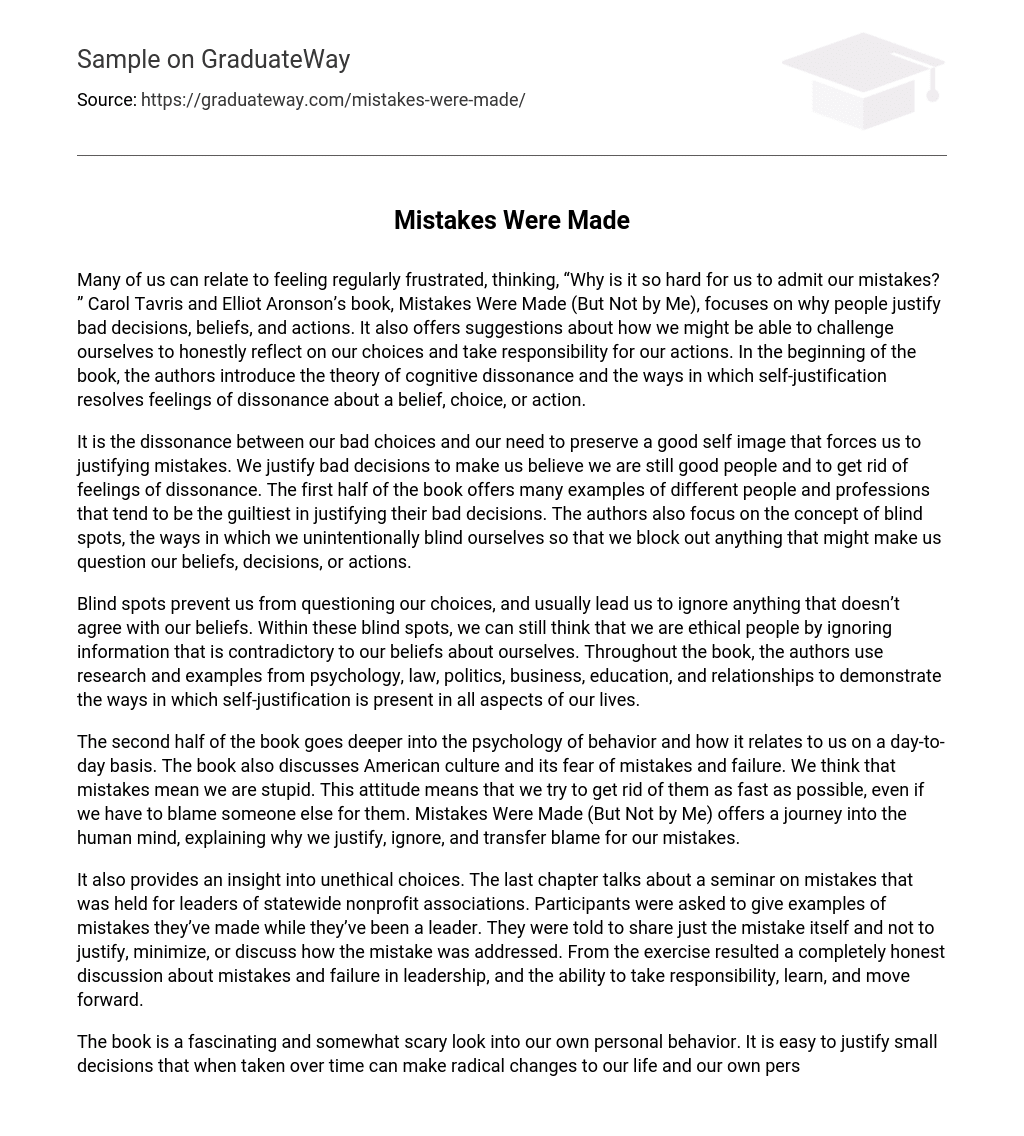Many of us can relate to feeling regularly frustrated, thinking, “Why is it so hard for us to admit our mistakes? ” Carol Tavris and Elliot Aronson’s book, Mistakes Were Made (But Not by Me), focuses on why people justify bad decisions, beliefs, and actions. It also offers suggestions about how we might be able to challenge ourselves to honestly reflect on our choices and take responsibility for our actions.
In the beginning of the book, the authors introduce the theory of cognitive dissonance and the ways in which self-justification resolves feelings of dissonance about a belief, choice, or action. It is the dissonance between our bad choices and our need to preserve a good self image that forces us to justifying mistakes. We justify bad decisions to make us believe we are still good people and to get rid of feelings of dissonance.
The first half of the book offers many examples of different people and professions that tend to be the guiltiest in justifying their bad decisions. The authors also focus on the concept of blind spots, the ways in which we unintentionally blind ourselves so that we block out anything that might make us question our beliefs, decisions, or actions.
Blind spots prevent us from questioning our choices, and usually lead us to ignore anything that doesn’t agree with our beliefs. Within these blind spots, we can still think that we are ethical people by ignoring information that is contradictory to our beliefs about ourselves. Throughout the book, the authors use research and examples from psychology, law, politics, business, education, and relationships to demonstrate the ways in which self-justification is present in all aspects of our lives.
The second half of the book goes deeper into the psychology of behavior and how it relates to us on a day-to-day basis. The book also discusses American culture and its fear of mistakes and failure. We think that mistakes mean we are stupid. This attitude means that we try to get rid of them as fast as possible, even if we have to blame someone else for them. Mistakes Were Made (But Not by Me) offers a journey into the human mind, explaining why we justify, ignore, and transfer blame for our mistakes.
It also provides an insight into unethical choices. The last chapter talks about a seminar on mistakes that was held for leaders of statewide nonprofit associations. Participants were asked to give examples of mistakes they’ve made while they’ve been a leader. They were told to share just the mistake itself and not to justify, minimize, or discuss how the mistake was addressed. From the exercise resulted a completely honest discussion about mistakes and failure in leadership, and the ability to take responsibility, learn, and move forward.
The book is a fascinating and somewhat scary look into our own personal behavior. It is easy to justify small decisions that when taken over time can make radical changes to our life and our own personal values. We will eventually “come to believe our own stories,” however incorrect they may be. I encourage everyone inside and outside Professor Washburn’s class Power of Words to read this book. It will make you more aware of your own thinking and to try and correct your behaviors





